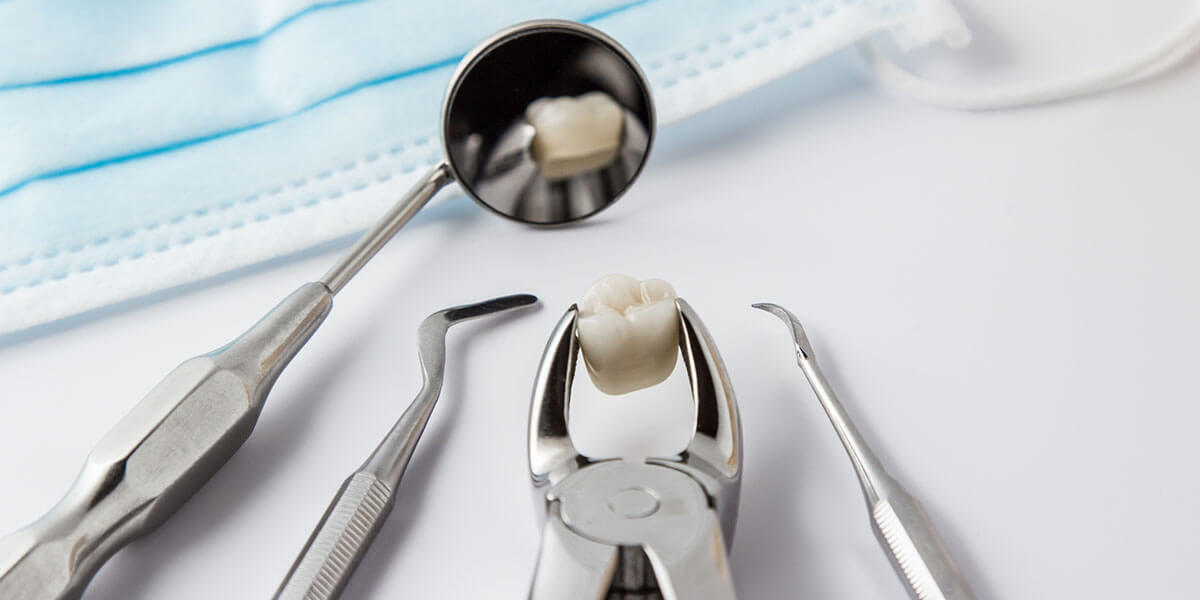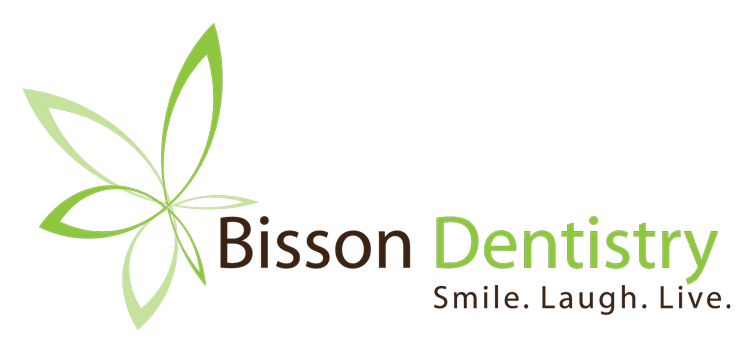Dental Extractions in Guelph

Bisson Dentistry performs dental extractions in Guelph, Ontario. Call 519-821-3561 to learn more and schedule an appointment.
Our ultimate goal as dentists is to help our patients preserve their natural teeth for as long as possible. Despite this, there are times when a tooth must be extracted in order to restore or preserve your oral health.
The most common reasons for dental extractions include:
- Wisdom teeth that are causing crowding or otherwise damaging the teeth around them.
- Making room for orthodontic treatment.
- A tooth that is too damaged to be saved by a crown.
- A tooth is loose due to periodontal disease and cannot be saved.
- Dental infections that cannot be treated by root canal therapy.
After a tooth extraction, we recommend replacing your tooth with a dental implant to restore function, biting strength, and the appearance of your smile. The exception to this is if you need wisdom teeth removed or extractions for orthodontics.
What Happens During a Dental Extraction
There are two types of dental extractions: simple and surgical. You will be referred to an oral surgeon if surgical extraction is required. Usually, impacted teeth require extractions. A simple extraction is performed for fully erupted teeth. This is a non-surgical procedure that can be done in our office.
Your dentist will numb your tooth and the surrounding tissue to ensure your comfort. To loosen the tooth from the jawbone, a specialized dental tool known as an elevator is used. We'll use forceps to gently extract the tooth from the jaw after it's loosened. Sutures may be needed at the extraction site, but not always.
What to Expect After Your Dental Extraction
At your appointment, we will provide you with detailed aftercare instructions. You'll feel some soreness at the extraction site when the local anesthetic wears off. Swelling can be reduced with cold compresses, and pain can be relieved with over-the-counter pain medications. After a routine tooth extraction, most patients are able to return to work or school the next day.
Frequently Asked Questions About Dental Extractions
Is tooth extraction painful?
No, your tooth and surrounding tissue will be numbed before we begin your extraction, so you won't feel anything except movement and pressure. The extraction site will feel uncomfortable and sore after the local anesthetic wears off, but this can be relieved with cold compresses and over-the-counter pain medication.
How soon after a tooth extraction can I eat?
To avoid injury, we recommend that you wait until the local anesthetic has worn off before eating. Eat only soft foods for 24 to 48 hours; gradually introduce hard items like nuts and crunchy foods like chips when you feel ready.
Do you need an implant after an extraction?
A dental implant is the best option for replacing a missing tooth, but dental bridges and dentures are other options. We always recommend replacing your extracted teeth to restore function and bite strength.
What happens if you don’t replace an extracted tooth?
When one of your teeth is pulled, nearby teeth may drift into the newly opened space, creating a domino effect that causes all of the teeth on the arch to migrate. The jawbone that supported the extracted tooth will deteriorate, causing serious dental issues, as well as face collapse.
Call 519-821-3561 to schedule an appointment.
